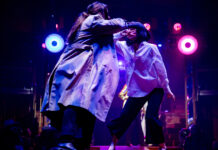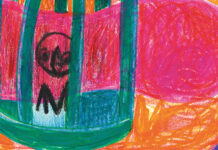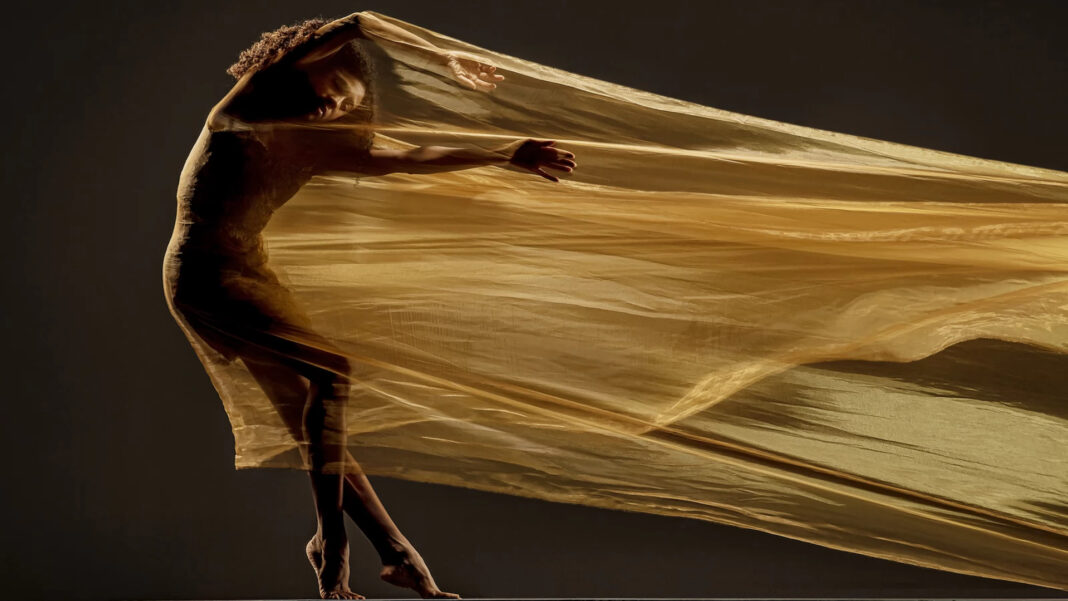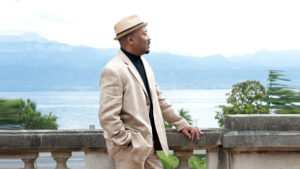
To celebrate the 40th anniversary of his eponymous LINES Ballet, Alonzo King dug deep within himself to come up with a ballet that echoes back throughout centuries and resonates today. That ballet, Deep River, is being performed this Saturday at the Segerstrom Center for the Arts in Costa Mesa. They will also perform the ballet on June 9th and 10th at The Wallis in Beverly Hills.
For music, King turned to his regular collaborator for 14 years: Jason Moran. He uses vocals and is joined by singer Lisa Fischer*.
King also uses music by James Weldon Johnson, Maurice Ravel and Pharaoh Sanders to tell his story.
Last week I spoke with King about the ballet, its themes and how being silent, even in dance, is a path forward. What follows are excerpts from our conversation that have been edited for length and clarity.
When we think of a concept of a deep river or the Jordan River, we’re thinking of an idea of it being symbolic for spiritual rebirth. Did the creation of this work involve or signal a rebirth or a salvation for you or the company? Or did you have bigger ideas about who or what perhaps needed to think about rebirth?
I’m always going for the bigger ideas. I think that river is the bubbling brook or stillness. In all mythologies the river, whether you are crossing the Styx or whether you’re going from life to death; whether there’s been a transition or there’s a change; or even the idea of a baptism – which actually originated in India to bathe in the Ganges for cleansing – rivers are symbolic and connected to the blood tributaries that are in all of us. It’s about ascension or a transformation into transcendence, hopefully.
We live in troubled times. I think we require transcendence to get out of the quagmires that we find ourselves in. Do you want to inspire people to re-think how we’re doing things right now?
In this difficult and brutal world there has to be a way out or there has to be another focus. Darkness and light. Light and shadow. They work in tandem in this world of duality. But the conundrum from human beings from the beginning of time is how do you merge out of duality back into oneness? That is the goal. That’s the gauntlet. How do you go from misery and identification with this small little form called the body back into the hugeness of oneness? How do you go from the teeny microcosm back into the macrocosm? That is our job, whether we know it or not. That is what most of us are blind to. We are hypnotized by the physical world. But there are other levels of thought and there are other directions. That’s our same task.
Is it the task of an artist to answer the questions that you just asked?
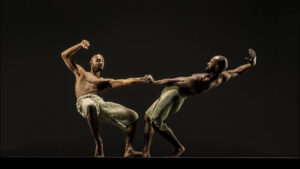
I think that the artist has to point to the light. And say this is what we’re forgetting. You have within you latent powers that would otherwise not be awakened if there wasn’t [sic] these catastrophes. There is a way in every enigma and in every puzzle, whatever the puzzle is, there’s a way to figure it out.
The same thing is within us and how we’re trained is to go external, to look outwards. We have gold mines inside of us. We have physiological centers that yogis took down thousands of years ago.
As we have come down the spinal column into what we call creation, there is a way to go back up that spinal column and get back to bliss. This is the constant message of everybody who had any interest or care about people. The escape is in consciousness. Where are you putting your mind? When you were reminding people that if there is negativity, there’s positivity. Which one do you want to focus on? Because they both work. They both are very effective. Which one do you want to dive into?
How important was it for you to use silence as part of getting this idea across in Deep River?
The shocking realities of being in movement all my life is that it is stillness where transformation really begins. We have to be still. Isn’t it interesting that I’m involved in movement? Introspection takes you into silence. Meditation takes you into silence. Not begging the world to give me satisfaction. The doorway to the infinite is silence and stillness. Stillness denotes world peace. And without peace, we are wretched. It’s just how it is.
There is a video online of Lisa Fisher and Jason Moran performing Deep River. What made them the right partners for this project?
Their hearts and their minds. It’s who they are as people. They’re both brilliant. There’s that camaraderie of spirit and that nonverbal understanding of recognizing that we have gone to a place that’s familiar. It may be difficult to put into clumsy words, but we recognize that we’ve had that journey together. There’s a kindred spirit because you recognize that this person has an understanding that I’ve also tasted or has an understanding that I want to experience more.
I read an interview you did with the New York Times four years ago and you describe the collaborations that you that you most enjoyed as being the ones that seemed, “trickier or potentially perilous.” You’ve been working with Jason for 14 years. At the outset of that first collaboration was there something that seemed tricky or potentially perilous about working with him?
I think that’s always there before you really work together. But when Jason [and I] had discussions, and when he sent me music, I just collapsed. When you find someone who fits and you get each other, it’s what you’ve been looking for your whole life. I could take up all of his time, but he won’t let me.
These masters, they’re giving wisdom. They’re bringing light. When you find people who are saying, I want to put light on the subject, how do you not want to dance with and participate with that? Lay in that. Listen to that. Listening is when you’re not thinking a damn thing except becoming the sound that you’re hearing. That’s a lot of work. You want to listen to great music because music is consciousness.
It’s interesting that you brought up the idea that you don’t want to think while you’re listening to music, because don’t you tell your students “I don’t want to see you thinking, I want to see you dancing?”
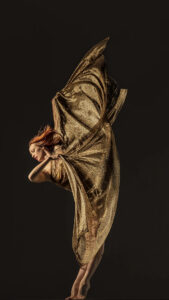
Often in education there’s a battle between being and doing. And in doing this sense of “I” stays prominent. I’m making this decision. I’m observing this. I’m experiencing that. In being you’re more in the present and you’re listening. You step away a little bit so that you’re in the passenger seat when you want to be and then you can switch and get back into the driver’s seat. It’s more of a dialogue instead of a soliloquy. There is give and take.
With music you don’t want to just follow the bouncing ball. You want to have something to say. You want to participate. Sometimes there’s this concomitant tension because you’re using your will and then to let go of your will and surrender. To see both of those things happening at the same time is a beautiful experience because you’re seeing Adam and Eve dancing together. You’re seeing a feeling in logic dancing together. You’re seeing science and nature dancing together.
We are edging ever so much closer to the tipping point as it relates to climate change. Given how connected your work is to nature, are you an optimist that the natural world can take care of itself?
We see nature not as a wonder, but something to be exploited. I think, to be really frank with you, it is the misunderstanding and the degradation of the term mother. We have no real respect for it, even though this was recently Mother’s Day. Mother Earth. Mother Nature. The idea of the progeny to the supplier. In our evolutionary progression, our first obsession is ourselves.
We’re involved in taking instead of giving or sustaining. Or looking at other cultures then say they didn’t know anything. Because if they knew anything, they would have exploited the land. It’s a mindset that is actually new compared to the life of the planet and how most people have lived. We have to become unselfish and un-greedy. Yet some people think they were smart because they got the money. We’ll look at the result. Look at the planet. There’s no respect for it as an entity. And what are we doing now? We’re moving into outer space, trying to collect land.
Paramahansa Yogananda wrote in Autobiography of a Yogi, “I look forward optimistically to a healthy, happy world as soon as its children are taught the principles of simple and rational living. We must return to nature and nature’s God.” I know you already agree with that, but it strikes me that we are moving further and further away from that concept. How would you like your work to remind us of that simplicity and rationality and that they are important tenets of our existence?
There are not words for that kind of sublime mastery. But in the same way that the Rosetta Stone opened up all this knowledge for us to understand that, Yogananda really is the Rosetta Stone for everybody in how to live life. And it’s one of the things that we’re missing. Art is being taken away from children unless you’re in wealthy environments. What is everywhere? Sports. People have no query about it. They understand the game. They played it from childhood. They learned all the rules, whether it’s soccer, football, basketball, you name it.
This is not the case with the arts and there’s a mistrust about it. It’s horrible. People look at dance and they don’t even know that it’s a language. They don’t understand that ideas are being communicated. They don’t understand that all the things that you and I have been discussing right now are actually on the stage. They look at it only in terms of esthetics. I’m not putting them down, but I’m saying that we are poorly educated in the United States of America. It’s not a rounded full education that’s addressing heart and mind. We are filled with intelligences and, better said, we’re filled with knowing. But the knowing, in a lot of people, has a lot of doubt.
*Lisa Fischer will be performing live at the two performances at The Wallis.
Main Photo: Alonzo King LINES Ballet (Photo by RJ Muna/Courtesy The Wallis)





